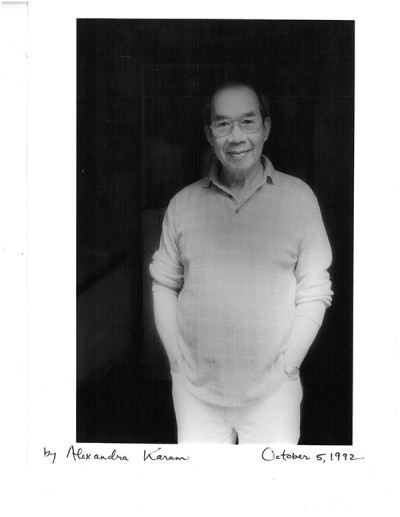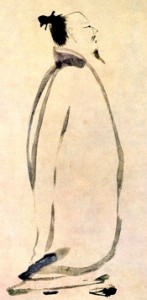 My father, James Ma, passed away on April 1, 2015. I gave him a poem as a Father’s Day gift in 2005. The last stanza was added on the day after his passing. He was a piano maker in Hong Kong and a lover of classical music.
My father, James Ma, passed away on April 1, 2015. I gave him a poem as a Father’s Day gift in 2005. The last stanza was added on the day after his passing. He was a piano maker in Hong Kong and a lover of classical music.
The Master
1.
In the morning he turned on the radio to the classical station.
He would listen with his coffee and toast.
At work his machines cut wood
and felt-tipped hammers
wound strings on metal frames.
Keys were repeatedly tapped
until the strings were tuned.
Among sweat and sawdust
he proudly checked his pianos
before they left the factory’s door.
On weeknights he practiced his cello.
On weekends he went to concerts.
He preferred the company of music
to the company of man.
2.
In the afternoon he held his spade,
slowly shuffled toward
the little red greenhouse
William built in the backyard.
A short winding path led to two tiny steps.
He climbed them carefully
left foot first, then lifted the right one
and brought them together,
pausing between attempts.
The night was warm.
He had kept the fans on for the orchids.
They needed cool air and ventilation.
Exotic greens
hung from the ceiling and on the walls.
They were gifts from friends
and orphans of deadbeat parents.
The quiet was pleasing
as he counted each bud
and pruned out dead leaves.
For flowers don’t speak.
They wouldn’t drown his ears
with sounds he no longer could distinguish.
He wouldn’t have to strain his mind
to read people’s lips
to put on a smile
to nod his head.
For flowers don’t sing.
Their delightful petals bloom
with silent praises to his good work.
For flowers don’t weep
upon hearing news of friends departed
but bestow hope and splendor
on life when it dims.
Sundown and fog
he preferred the company of flowers
to the company of man.
3.
In the evening he prepared dinner.
Grilled salmon in the oven.
Tender greens with toasted nuts,
cashews, pecans and sunflower seeds.
The radio played a cello tune.
A fresh cut orchid on the table.
For his daughter was coming home,
the wild flower with a head of dreams.
He saw her flaws and weaknesses
but understood the sacred art
of giving his heart and letting go,
forgiving age and pardoning change.
As he surveyed the simple feast,
he preferred the company of his creation
to the company of man.
4.
He lay still on a hospital bed.
His head fell on one side of his shoulder.
That insatiable hunger had finally ebbed
except for the faces that flashed before him
loving, smiling, lively, beautiful.
He laughed, reached out to grasp
and caught a thread as thin as air.
He could still make something
and he would keep on making
for no work is ever done
even when the work is done.
He mulled over this dubious place
where his body was confined.
The seconds on his watch kept ticking
his pulse quickening
running, running faster than time
leaving behind the sounds
and the cries the touch of gentle hands
leaving the disobliging machine
to the company of men.

